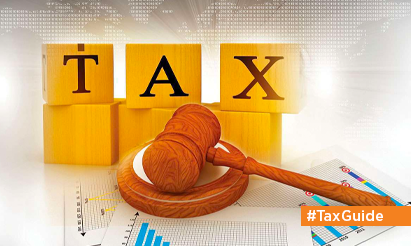Taxation Unplugged: A Comprehensive Guide to Income from Other Sources!
In India, the Income Tax Act categorizes various sources of income for taxation purposes. While most people are familiar with income from salaries, business, and investments, there is a category called “Income from Other Sources” that encompasses diverse earnings not covered under the other specific heads. This blog aims to shed light on what constitutes income from other sources and how it is taxed in India.
Understanding Income from Other Sources:
Income from Other Sources includes earnings that do not fall under the heads of income from salaries, house property, business or profession, and capital gains. It comprises a wide range of miscellaneous incomes and can include interest income, rental income from machinery, gifts, dividends, winnings from lotteries, and any other income not covered by the other specific categories.
Examples of Income from Other Sources:
- Interest Income: Interest earned from savings accounts, fixed deposits, recurring deposits, and other financial instruments.
- Rental Income (Not from House Property): Income received from renting out machinery, equipment, vehicles, or any other assets.
- Dividends and Bonuses: Earnings received from investments in shares and mutual funds.
- Income from Gifts: Any gift received exceeding ₹50,000 in value during a financial year is taxable as income from other sources.
- Winnings and Prizes: Income from lotteries, crossword puzzles, game shows, etc.
- Royalties: Income earned as royalties for intellectual property, books, music, or inventions.
- Pension: Income received from pensions other than the one received from the employer’s pension scheme.
- Alimony: Monetary support received post-divorce is taxable as income from other sources for the recipient.
Taxation of Income from Other Sources:
Income from Other Sources is taxable as per the individual’s applicable income tax slab rates. Here are some essential points to consider:
1. Deductions: Unlike some other heads of income, there are no specific deductions available under the Income Tax Act for income from other sources.
2. TDS (Tax Deducted at Source): For certain incomes like interest on fixed deposits and winnings from lotteries, TDS may be deducted by the payer at prescribed rates before making the payment to the recipient. However, the recipient is still required to report and pay taxes on this income as per their slab rate during the income tax filing.
3. Clubbing of Income: In certain situations, like gifts to minors or income from assets transferred without adequate consideration, the income may be clubbed with that of the person who made the gift or transfer.
4. Reporting: Income from Other Sources must be reported while filing the income tax return, and proper documentation and records should be maintained to support the declared income.
Conclusion:
Income from Other Sources constitutes an important aspect of an individual’s taxable income in India. Understanding what constitutes income from other sources and its taxation is crucial for every taxpayer. As these incomes vary significantly from person to person, seeking professional advice or consulting a tax expert can help ensure compliance and optimize tax planning for individuals with such earnings. By accurately reporting and paying taxes on income from other sources, taxpayers can stay compliant with the tax laws and avoid any future penalties or legal complications.
Disclaimer: The views expressed above are for informational purposes only based on industry reports and related news stories. PropertyPistol does not guarantee the accuracy, completeness, or reliability of the information and shall not be held responsible for any action taken based on the published information.




